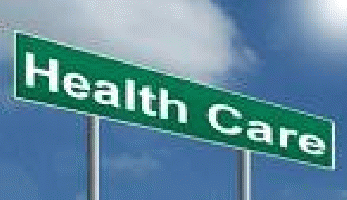From Smirking Chimp
By Kevin Zeese and Margaret Flowers
With just a week left before Congress' budget reconciliation process ends, the Senate is once again peddling a poorly-thought out plan to repeal and replace the Affordable Care Act (ACA). If Senators vote before the September 30 deadline, they only need 50 votes instead of the filibuster-proof 60 votes to pass amendments. And once again, people are rising up in opposition to the plan, making it unpopular and unlikely to pass.
At the same time, support for a National Improved Medicare for All single payer healthcare system is increasing and there are bills in both the House and Senate with record numbers of co-sponsors. Will the United States finally join the long list of countries that provide healthcare to everyone?
Overall, it is a time to be optimistic. The movement for National Improved Medicare for All has made great strides this year. Whether we succeed still hangs in the balance. We discuss what it will take to win and how to proceed.
Join Health Over Profit for Everyone (HOPE), a campaign for National Improved Medicare for All.
First, Some History
Efforts to create a national health insurance have existed in the United States for the past 100 years. Health historian, David Barton Smith, writes (in a draft chapter) that the fundamental struggle in the US has been over the question of whether health care is a commodity that belongs in a market or whether it is a basic necessity that requires the protection of government so that it is universal. Smith breaks up the past one hundred years into five phases and argues that in each phase, compromises were made that failed because they did not meet the fundamental criteria of covering everyone and achieving effective governmental oversight. He refers to these compromises as "more palatable approaches" that were considered to be politically feasible, but each "self-destructed."
These failures, including the most recent ACA, have driven health care deeper into the pockets of private industry from the provision of medical services to the the production and distribution of pharmaceuticals and medical devices. Doctors are turning their practices over to large institutions, "going corporate," in order to have the negotiating power to simply exist in this environment. Mergers by health insurers, hospitals and pharmaceutical companies have been acts of desperation, as each sector fights for control. But the bottom line in this fight is profit for a few, not health for the many, and so it is the public who suffers. Dr. Adam Gaffney traces and explains this trend from the 1940s to the present in "The Neo-liberal Turn in American Health Care."
Make no mistake, currently, in the United States, health care is a commodity, and the profiteers are going wild. Since passage of the ACA, major health insurance company stock values have quadrupled. And they are never satisfied. Democrats and Republicans in Congress are discussing a "bipartisan approach," as outlined by the Center for American Progress, which is funded by health industry lobbyists, to fix the healthcare system. Their plan is to give billions of more dollars to the industry to encourage it to cover our healthcare needs. They refer to this as "stabilizing the market."
Any person who says that health care is a right or basic necessity but supports keeping the existing market-based structure is either confused or lying. The market model of health care is a failure. Even Fareed Zakaria, conservative host of CNN, understands this.
This history is important because the elites in power are working to maintain their grip on the system. Incrementalists were out in full force after the failure of repeal attempts this summer. Writers who claim to be progressives argued that those who want National Improved Medicare for All are asking for too much, that it is just not politically feasible and that we must compromise. But what they might consider to be doable won't solve the healthcare crisis.
Incremental steps that were taken in the past did not succeed because they failed to meet the basic requirements of being both universal and properly overseen by the government. This is why we say that the smallest incremental step that we can take in the US is to create a National Improved Medicare for All, a universal publicly-funded healthcare system that relegates private insurers to a supplemental role to provide extras that the system does not cover. Beyond that, there will still be a lot to do to make sure everyone has their healthcare needs met.
National Improved Medicare for All is on the table
A victory this year is that there are bills in the House and Senate that outline a National Improved Medicare for All healthcare system, and they have record numbers of co-sponsors. HR 676 is considered the 'gold standard'. It has been introduced every session since 2003 and it has broad support from the single payer healthcare movement. It would truly treat health care as a public necessity and not a commodity.
(Note: You can view every article as one long page if you sign up as an Advocate Member, or higher).





